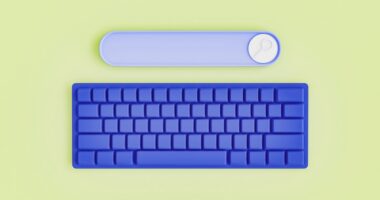A NASA scientist has revealed how her job could prevent astronauts and spacecrafts from bringing dangerous ‘alien contamination’ back to Earth.
Dr. Moogega Cooper has been described as a real life ‘Guardian of the Galaxy’ and recently spoke to Talks at Google about her important role.
Dr. Cooper told Google: “I am a planetary protection engineer and so my job is twofold.
“The first part is, when we’re sending out spacecraft, rovers, orbiters, whatever it may be, beyond our own planet to another either planet, moon, asteroid that may habor life, it’s my goal and the team’s goal to make sure that we don’t send our Earth germs to those locations, especially when we’re trying to search for life.”
One fear is that scientists will think they’ve found life but they’ve actually found a “hitchhiker from Earth”.
Dr Cooper works to prevent that scenario for Nasa.


In a similar vein, Cooper’s job is to try and protect our own planet from any future ‘alien contamination’.
She explained to Talks at Google: “One day we hope to bring samples back to out own planet and you have to have that same consideration.
“When you bring something back you don’t want to bring something that may be harmful to humans.
“So we have to do the best job possible to make sure it’s done right.”
Most read in Tech
She continued: “The amount of contaminates that can make its way onto the spacecraft is huge and the number one source is from humans, the people that put the spacecraft together.
“We humans have more microbes in and our our body than we have human cells.
“We’re more bacteria than we are human and yet we’re touching these materials.”
She went on to explain that people who put spacecraft together have to wear cleanroom garments to prevent contamination.
Cleanrooms are also used that contain ‘ambient air’ with less germs and particles.
Dr. Cooper and her team also take regular swaps of spacecraft to make sure they’re not contaminated.
When it comes to protecting Earth from alien life, Cooper says: “We can only protect against life as we know it today.
“If we learn something else, we can modify that approach.
“It’s similar with the Covid approach. You learn something new and you have to adjust it.”
She added: “You just role with the punches because you’re scientists and so that’s the same thing for Martian life.
“We only know life as we know it. So, we’ll use the worst thing we can think of on our planet as the model for Martian life.”
Right now, the scientists are basing their ‘potentially dangerous’ Martian life models on prions.
Prions are molecules that can do a lot of harmful things to your brain.
Some prions on Earth cause mad cow disease, which can lead to dementia and death.
Dr. Cooper said: “What if Martian life was similar to prions?”


Her job is to work out how scientists could kill that dangerous ‘life’ and prevent it causing damage on Earth.
Cooper and her team continue to work on models for these worse-case scenarios.
We pay for your stories!
Do you have a story for The US Sun team?









